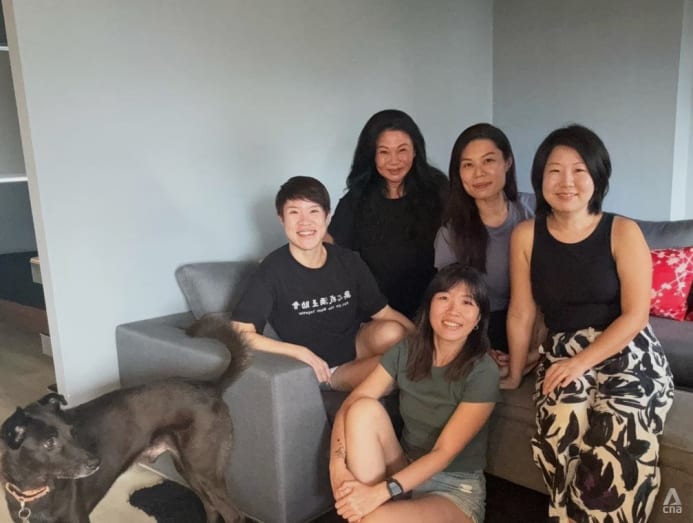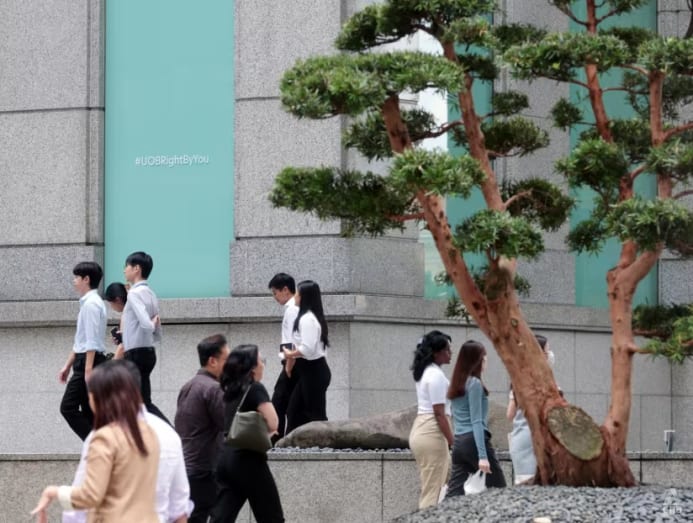During my first university summer break, I willingly took on an unpaid, full-time internship. I knew before applying that I wouldn’t earn a cent.
The gig: Fashion editorial intern for the now-defunct Cosmopolitan Singapore magazine. For eight weeks in 2012, I was Anne Hathaway in The Devil Wears Prada – sans an evil boss and obnoxious colleagues.
One major task involved sourcing, loaning and returning clothes, shoes and accessories for photoshoots. This meant shuttling between about 10 stores daily, ensuring every item stayed pristine through rain or shine – or risk paying S$300 for a scuffed shoe.
I also spent hours scouring celebrity photos online for the magazine’s fashion pages, testing both my pop culture knowledge and patience.
Behind the glamour of the publishing industry, the work was tedious, exhausting and pressurising to a borderline comedic degree.
And I enjoyed it so much that I extended my internship by another two weeks, also unpaid, halving my remaining free time before the next semester.

WORK SMARTER, NOT HARDER?
Looking back, I’m almost embarrassed to admit that I, a progressive millennial, once happily gave away my labour for free. An unpaid internship would seem to defy today’s interpretation of “work smarter, not harder”.
In theory, this modern workforce mantra – especially popular among Gen Zers – is exactly the behavioural change that millennials like me have always wanted to see. We reject presenteeism, resist redundant tasks, and detest the culture of staying late just to appear busy.
Contrary to our “strawberry generation” label, many millennials embrace unavoidable hard work, even if the basic level of hard work required differs depending on the industry. Though I believe in leaving the office when one’s tasks are done, I never mind working overtime when necessary.
But having been parented, taught and mentored by a more conservative generation of workers, we also equated career success with not rocking the boat. It’s no surprise that we’ve also been labelled the burnout generation.
Gen Z – unapologetically vocal about their boundaries and unafraid to question the status quo.
Enter Gen Z. Having witnessed the fallout from a lack of boundaries, they rallied around “work smarter, not harder” as a call for balance.
But where many millennials took on more than we could handle at the expense of our physical and mental health, a significant portion of our younger counterparts take it to the opposite extreme.
The critique of Gen Z’s work ethic – unwillingness to work hard, entitlement to work-life balance, overly choosy with jobs and impatience for results – doesn’t seem to faze them. They are unapologetically vocal about their boundaries and unafraid to question the status quo, embodying an audacity from which millennials could learn.
I get it, workplace culture discourse can feel like Groundhog Day. Every generation has the same critique of younger folk that they received from their elders.
But in my experience, there is a difference between knowing what you want and knowing how to get it.
It can take years to figure out working smart is often about knowing how to do it, requiring flexibility in approach rather than a rigid pursuit of and single-minded focus on ideal outcomes.
RIGID IDEAS ABOUT WORK-LIFE BALANCE AND BOUNDARIES
Take work-life balance – which many students I speak to say they would eventually prioritise when choosing a career. While their conviction is admirable, this sense of certainty risks becoming rigidity, if they don’t adapt their approach to balance in different jobs, companies, industries and life stages.
At a previous job, I believed that balance meant shorter hours at the office and less work. But no matter how rested I was or how scaled down my workload, I couldn’t alleviate the persistent fatigue.
I now work longer hours on more complex assignments. Yet on any regular week, I feel a mere fraction of the exhaustion I once carried around in a day.
The difference is the joy in the slog.
Anti-hustle rhetoric had me convinced that labour wasn’t meant to be enjoyable or fulfilling. But my unpaid internship showed me the opposite was possible, and that working smart meant defining work-life balance on my own terms.
It’s just easy to forget when I listen to society’s voice over mine.
In their search for work-life balance, more younger employees are also rightfully prioritising mental health. The issue, again, is execution.
I’ve noticed the irony of inflexible boundaries among younger colleagues seeking to prioritise their mental health by asking for greater flexibility at work, through conversations with peers from various sectors in Singapore including law, banking and social services.
One said that a junior colleague didn’t show up for a meeting because they “couldn’t deal with it” that day. Another recalled an employee going MIA amid a company crisis because it was affecting the person's mental health, even though it had been the same person's job to manage the crisis.
This behaviour doesn’t appear unique to Singapore either.
A millennial mum in the United States recently said in a viral tweet that three potential Gen Z babysitters had bailed on her with no warning. She asked, "Is this a Gen Z thing?"
In response, a Gen Z manager explained that such behaviour reflects “massive social anxiety at a generational level and an extreme level of conflict aversion”.
But in my view, underpinning these present questionable workplace behaviours is a singular, increasingly pervasive belief: "You don’t owe anyone anything."
WORKING SMART IS ABOUT STRATEGY, NOT SHORTCUTS
Arguably, burnt-out and fed-up millennials perpetuated the notion that workers owe corporations nothing – a sentiment born of a collective desire to protect against exploitation.
But taken too far, it can also lead to perpetual guardedness, stunting one’s growth, if prevailing stereotypes about Gen Z’s work ethic are anything to go by.
On the flip side, the heightened anxiety can result in taking on too much work indiscriminately, such as by participating in the internship rat race. Not exactly the epitome of "working smart" either.
The reality is that you do owe at least one person something. You owe your future self a reputation you would be proud to have, especially in the era of personal branding.
To me, working smart isn’t just about rejecting hard work or prioritising short-term efficiency, like using artificial intelligence to help with a report. And it’s certainly not about holding steadfast to certain beliefs regardless of real-world circumstances.
It's about being strategic, recognising that each intentional decision serves its purpose. No effort is wasted if we’re patient and open-minded enough to reap results we might not have expected.
Admittedly, I used to refrain from telling younger peers about the menial tasks in my unpaid internship with Cosmopolitan, from ironing out clothing creases to knowing the difference between lilac and lavender. I couldn't see a way to recount the work I willingly did without appearing to suffer from Stockholm syndrome, especially since I'd applied purely to have a reputable brand on my resume.
But 12 years and four full-time jobs after the internship, my most absurd career move remains one of my smartest.
The absence of pay turned out to be the actual reward. I wasn’t technically obliged to go to work, and no one would have faulted me if I decided I was done. That realisation forced me to confront why I showed up every day for two months and then some.
Even though it was a short stint, the true payoff went far beyond a CV addition. Removing money from the equation instantly defined my fundamental work ethic early in my career, giving me abject clarity on what drives me and what doesn’t.
To date, it’s the one career benchmark I return to time and again when deciding whether to take up or move on from a role.
So I was paid after all. But, like all worthy investments, the returns took time.


